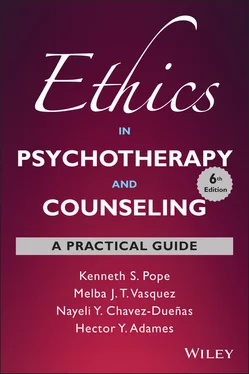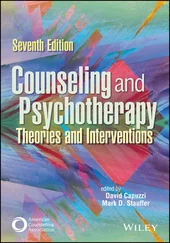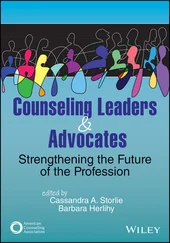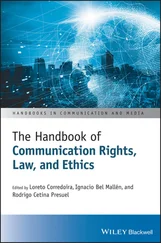Kenneth S. Pope - Ethics in Psychotherapy and Counseling
Здесь есть возможность читать онлайн «Kenneth S. Pope - Ethics in Psychotherapy and Counseling» — ознакомительный отрывок электронной книги совершенно бесплатно, а после прочтения отрывка купить полную версию. В некоторых случаях можно слушать аудио, скачать через торрент в формате fb2 и присутствует краткое содержание. Жанр: unrecognised, на английском языке. Описание произведения, (предисловие) а так же отзывы посетителей доступны на портале библиотеки ЛибКат.
- Название:Ethics in Psychotherapy and Counseling
- Автор:
- Жанр:
- Год:неизвестен
- ISBN:нет данных
- Рейтинг книги:5 / 5. Голосов: 1
-
Избранное:Добавить в избранное
- Отзывы:
-
Ваша оценка:
- 100
- 1
- 2
- 3
- 4
- 5
Ethics in Psychotherapy and Counseling: краткое содержание, описание и аннотация
Предлагаем к чтению аннотацию, описание, краткое содержание или предисловие (зависит от того, что написал сам автор книги «Ethics in Psychotherapy and Counseling»). Если вы не нашли необходимую информацию о книге — напишите в комментариях, мы постараемся отыскать её.
Ethics in Psychotherapy and Counseling: A Practical Guide
Ethics in Psychotherapy and Counseling: A Practical Guide
Ethics in Psychotherapy and Counseling — читать онлайн ознакомительный отрывок
Ниже представлен текст книги, разбитый по страницам. Система сохранения места последней прочитанной страницы, позволяет с удобством читать онлайн бесплатно книгу «Ethics in Psychotherapy and Counseling», без необходимости каждый раз заново искать на чём Вы остановились. Поставьте закладку, и сможете в любой момент перейти на страницу, на которой закончили чтение.
Интервал:
Закладка:
In the midst of these limitations, conflicts, disagreements, and complexities, we must make the best choices we can. We must each struggle to answer the question: What do I do now? And each of us must take responsibility for the decisions we ultimately make. We cannot shift personal responsibility for what we decide and what we do to another person, group, law, code, or custom. There is no escape from these struggles. They are part of our work.
8. We and our clients do not live in a vacuum. We live and develop in sociocultural contexts.
We are called to act in accordance with an ethic of human rights and social justice. We open our eyes and hearts to how discrimination, hatred, injustice, beatings, xenophobia, slavery, jail, starvation, torture, or genocide—based on factors like race, religion, immigration, culture, gender, sexual orientation, disability, politics—affect us, our clients, their families and communities, our supervisees, and the world we live and work in. We search for the most ethical response to social injustice. We don’t shrug our shoulders and turn away. We face these issues with courage, honesty, caring, and a sense of personal responsibility to respond ethically.
Notes
1 1 Professional standards are considered to be mandatory while guidelines are aspirational in intent and highly recommended for best practice.
Chapter 2 ETHICS IN REAL LIFE
Even the simplest ethical concept, standard, or guideline can fool us. We hear it in class. We read it in the code. We understand it. We can explain it in a test, give a lecture on it, or explain it to a jury. We know the concept, standard, or guideline, but it fools us when it shows up unexpected in the messiness of real life. It comes dressed in different clothes—and sometimes camouflage—and we don’t recognize it.
Therapy offers countless challenges to recognizing how a specific ethical concept, standard, or guideline might be helpful or vital. One reason is that concepts, standards, and guidelines tend to be abstract, general, and sometimes ambiguous. Another reason is that psychotherapy can be such a complex set of interactions between unique people. Yet another is that psychotherapy can serve as the intense focus of need, hope, risk, and expectation. Lives can be at stake.
In the midst of this work, as it actually happens in real life, it can be hard to recognize those moments when we need to consider an abstract ethical concept, standard, or guideline.
This chapter provides examples of those moments as they happen in the messy textures of real life. None is based on a specific case (and none of the people are based on an actual clinician or patient), but each represents the kinds of challenges that therapists and counselors face in their day-to-day practice.
In each of the following fictional scenarios, the clinicians were trying to do their best. Readers may disagree over whether each clinician met the highest or even minimal ethical standards, and such disagreements can form the focus of classroom discussions, case conference presentations, or supervision consultation. In at least one or two instances, you may conclude that what the clinician did was perfectly reasonable and perhaps even showed courage and profound ethical awareness. In some cases, you may feel that significant relevant information is missing. But in each instance, the professional’s actions (or failures to act) become the basis of one or more formal complaints.
As you read each scenario, consider the situation from the point of view of each person mentioned as well as a member of an ethics committee, licensing board, or jury hearing the complaint.
RECORDS
After a full day of Zoom and Facebook sessions with her clients, Dr. Soo sits down at the computer to update her clinical files, making sure all the notes, billing information, digital copies of the day’s Zoom and Facetime sessions (recorded with the full informed consent of her clients), and other records are current. She turns on the computer and … nothing. Just a blank screen. That’s never happened before. Wait: A message scrolls into view:
Greetings, Dr. Soo! I was able to hack into your computer—obviously!—and copy all your files. Yes, even your video files, which I found quite interesting. I even accessed those files you stashed in the cloud as backups. Your passwords weren’t much of a challenge for my software and finding your key to unencrypt your encrypted files was something I did while multitasking. I left your files on your computer, but I used a much more sophisticated program to encrypt them so that you can’t access them.
I’ll bet you’re upset, even angry, but you needn’t be. All can be set right as rain in just a step or two. All you need do is deposit $25,000 U.S. in bitcoin into the account specified at the bottom of the page within 72 hours, I’ll send you the key that will unencrypt your files, and you’ll never hear from me again.
Easy, isn’t it? A simple quid pro quo.
Oh, one more thing, Dr. Soo. What if you don’t pay within 72 hours? What if you think you don’t even need to pay because you’ve got another copy of all your records hidden somewhere on a disk that is not connected to the internet and so inaccessible to me and my merry band of fun-loving rascals? Well, you should know that were I not to receive the bitcoin within 72 hours—and I have full confidence you won’t let that happen—unencrypted copies of all your files will start appearing on all sorts of anonymous websites, and your clients and all others in your address book will receive notification along with links to some of those websites.
In closing, allow me to wish you well, Dr. Soo, especially next Tuesday, where I see in your scheduler and notes you’re expected to testify as an expert witness on the clinical records you reviewed and the tests you administered. It would be such a shame if the judge and attorneys in that case were to be notified before you testified that you had guarded the confidentiality of all those records so well that they were now available for all to see on a whole array of websites. Bet that would lead to an interesting cross-examination? Might even lead to a little chat with the licensing board.
Bye-bye, doc! And thank you for making me feel so welcome. No two-factor identification when signing in to your computer, no ransomware protection, not even a virtual private network when you connect to the internet. I felt you were inviting me in.
To avoid having her clients’ records and videos flashed across the web, Dr. Soo manages to get together $25,000 by emptying her savings and borrowing the rest, and sends off the bitcoin under the deadline. However, the files are never returned to her—They show up on a variety of anonymous websites. Several clients sue.
LUNCH
Josefina was a Black Cuban high school student. She worked part time as a cook. During the first session with Dr. Marcus she poured out a heart full of pain from the discrimination and racist abuse she’d endured at her mostly-White high school and at her job. Just being able to talk about it made her hurt less, she said. She didn’t feel so suicidal as she had the last few weeks. The next session she showed up extremely distressed. She’d lost her job as a cook and could no longer pay for therapy.
Dr. Marcus, who did pro bono work conducting asylum assessments at a legal aid clinic, had never offered free therapy. He believed that patients would not value or work hard if therapy cost nothing. So, he suggested various ways they might barter for the fee. Josefina had nothing tangible to barter with but Dr. Marcus suggested that, since she had been a cook, if she were to cook him a meal and bring it with her to each session, he would accept that as payment. She gladly accepted, thrilled she’d be able to continue therapy.
Читать дальшеИнтервал:
Закладка:
Похожие книги на «Ethics in Psychotherapy and Counseling»
Представляем Вашему вниманию похожие книги на «Ethics in Psychotherapy and Counseling» списком для выбора. Мы отобрали схожую по названию и смыслу литературу в надежде предоставить читателям больше вариантов отыскать новые, интересные, ещё непрочитанные произведения.
Обсуждение, отзывы о книге «Ethics in Psychotherapy and Counseling» и просто собственные мнения читателей. Оставьте ваши комментарии, напишите, что Вы думаете о произведении, его смысле или главных героях. Укажите что конкретно понравилось, а что нет, и почему Вы так считаете.












